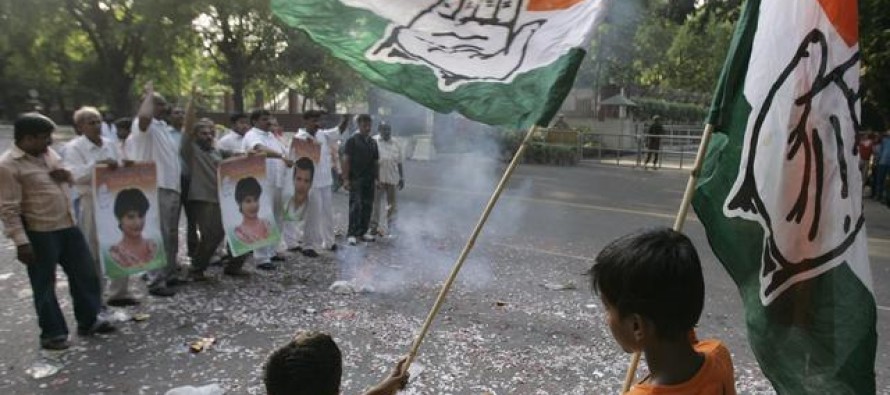Congress victory in India Bangladesh

Polling results released on 16th May indicate that the Prime Minister, Dr. Manmohan Singh, will become only the second Indian leader to win re-election after serving a full five-year term. Even though the election was fought primarily on domestic issues, the result has enormous implications for our region.
India’s new-found foreign policy direction is built on the back of a booming economy since 1991. GDP more than tripled since 1998. Despite global woes, India will grow at an impressive 6 per cent to 7 per cent this year.
When Dr. Singh became Prime Minister in 2004, New Delhi saw that a relationship with the American superpower was filled with opportunity rather than just threat. Not that they are natural allies in any mystic or real sense, but because strategic interests coincide, reinforced by oil diplomacy, the war on terrorism and the presence of more than a million Indians in the US.
India fully realises that it cannot achieve its due role in the region and globally without American cooperation. Only its improved power can restrain Pakistan’s adventurism and contain China increasing influence in the region. The former Prime Minister of India, Inder Kumar Gujral, put it that normal relations with America are regarded as a momentous breakthrough.
India however does not want others to see the relations with the US as sacrificing its option of policies. Rather it considers the relationship with the US as a partnership to achieve its dominant role in the region and globally. India, being a large country with resources, does not consider co-operation with America to entail its subservience to the global superpower.
The signing of a nuclear agreement with the US has been a landmark decision by the Congress-led government. According to the Bulletin of the Atomic Scientists, the India’s Defence Ministry has earmarked US$ 2 billion annually to build 300 to 400 weapons over the next 5 to 7 years. The US has openly discussed the sale of naval vessels, combat aircraft, patrol aircraft and helicopters to India.
India’s relations with Russia continue robustly. India has begun constructing a 37,500-tonne aircraft carrier that will fly MiG-29 fighters, joining only with navies of big powers in such capabilities. It also plans to lease two nuclear submarines from Russia.
India has consolidated its economic relations with China. Their bilateral trade has boosted from a millions to billions of dollars (in 2005 US$18.7 billion), by 2008 to US$20 billion and by 2010 to US$30 billion. India seeks to be a major player in the computer software and bioinformatics in the same way that China is in the area of hardware. The future of business, according to some analysts, will shape between Bangalore and Shanghai
India is strategically located in South Asia and shares border with almost all countries in South Asia. It is strategically located in the middle of South Asia and the ocean that hugs it bears its name, Indian Ocean that reaches out the sands of Egypt to the Straits of Malacca.
Surrounded by unstable states in Pakistan, Afghanistan, Nepal and Myanmar, India stands as a beacon of democratic stability. India’s rising economic power and political stability is likely to shift the geographic distribution of global power in Asia and force a restructuring of Western-dominated international bodies, right up to the UN.
Relations with Bangladesh
The democratic government led by Prime Minister Sheikh Hasina is well poised to have meaningful and constructive relations with the new elected Congress-led government. India appears to be more comfortable with non-communal policy of the Awami League. Sheikh Hasina’s landslide victory in the December election demonstrates that people has voted for “bread and butter” issues and rejected the ideology of Islamic-based parties (as Indonesia did last April).
It is highly desirable India should pursue the “Gujral doctrine” (not based on strict reciprocity) in its relations with Bangladesh to create an environment of trust and confidence so that the perception of India as being an arrogant “big brother” must disappear.
The out-standing issues with Bangladesh need to be resolved through meaningful dialogue. In the past, India sought to negotiate a single issue on a bilateral basis, without appreciating that it is connected with other issues and therefore does not admit easy solution.
An integrated approach of all bilateral issues is imperative, rather than addressing issues on a piecemeal or sector- wise. Furthermore India needs to view the issues of energy, water resources, transit and global warming through the prism of regional cooperation.
Bangladesh wants to establish mutually beneficial relations with India and if India is able to create a suitable environment by resolving prickly bilateral issues, it will be much easier for the Sheikh Hasina government to carry people in developing a range and pattern of political and economic relationship with India.
Both countries require in making the same political, bureaucratic, intellectual, educational, cultural and media effort on positive features of each other. Often some media in both countries highlight negative images of each other.
Given the right spirit and desire to live together in cooperative spirit, there is no adequate reason why the relations between the two countries cannot but be friendly.
By Barrister Harun ur Rashid
Former Bangladesh Ambassador to the UN, Geneva.


